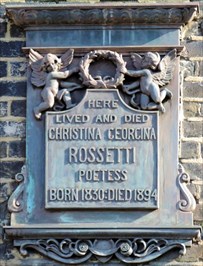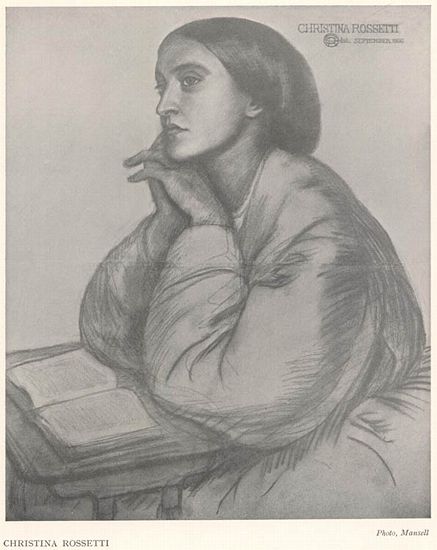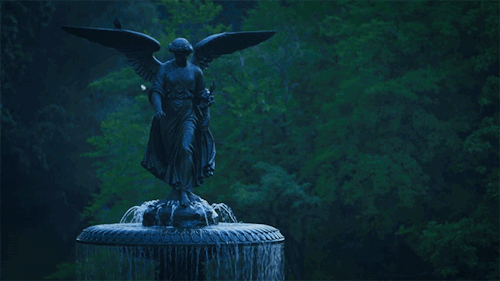"Come back in tears...love of finished years." [5]
Although in a dream, she pines for death where she can be in Paradise with him. Where, perhaps not described this way before is that of Heaven as a 'slow door', "That opening, letting in, lets out no more." [12]
The idea of the slow door is telling, it shows Rossetti's comparative discord in the poem, in one point the terribly quickness of the dream where she recalls her lover, and the agonizingly slow door of Heaven. The placid pace of time and what was lost, the immeasurable time of 'finished' years.
She grasps at him in the last, and urges him to "speak low, lean low" [17], as he did before. Rossetti was an English poetess and fairly popular in her lifetime, she died of cancer in 1894.
ECHO, 1854
Come to me in the silence of the night;
Come in the speaking silence of a dream;
 Come with soft rounded cheeks and eyes as bright
Come with soft rounded cheeks and eyes as brightAs sunlight on a stream;
Come back in tears,
O memory, hope, love of finished years.
Oh dream how sweet, too sweet, too bitter sweet,
Whose wakening should have been in Paradise,
Where souls brimfull of love abide and meet;
Where thirsting longing eyes
Watch the slow door
That opening, letting in, lets out no more.
Yet come to me in dreams, that I may live
My very life again tho’ cold in death:
Come back to me in dreams, that I may give
Pulse for pulse, breath for breath:
Speak low, lean low,
As long ago, my love, how long ago.
...
SONG, 1848
When I am dead, my dearest,
Sing no sad songs for me;
Plant thou no roses at my head,
Nor shady cypress tree:
Be the green grass above me
With showers and dewdrops wet:
And if thou wilt, remember,
And if thou wilt, forget.
I shall not see the shadows,
I shall not feel the rain;
I shall not hear the nightingale
Sing on as if in pain:
And dreaming through the twilight
That doth not rise nor set,
Haply I may remember,
And haply may forget.
...

